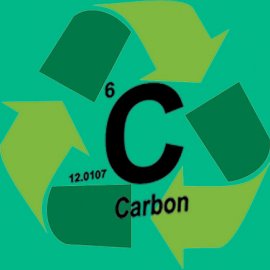Why We Need a New Vocabulary to Talk About Carbon
-
English
-
ListenPause
I’m Peter Neill, Director of the World Ocean Observatory. Despite the re-commitment to the Paris Climate Treaty voiced by 195 nations at the COP 22 climate meeting in Marrakesh, Morocco, this week, there remains the reality of climate change denial and the failure by major producers of carbon emissions to restrict voluntarily or by legislation this recognized force in our rapidly changing natural world. That climate change was not even discussed in the recent presidential election in the United States is a telling indicator. The environmental movement has worked assiduously to build public awareness of this global problem, but if there has been no meaningful shift in public attitudes, perhaps then we should reconsider the tenets of the argument and the vocabulary used. William McDonough, architect, urban designer, and visionary provocateur, introduced one such change in the November issue of NATURE and to a COP 22 audience, that offers a fascinating change in how we view the carbon cycle, how to redefine its value, and how to mitigate its negative consequence as a possible new way forward. McDonough identifies three categories of carbon: “Living Carbon, organic, flowing, providing fresh food, healthy forests and fertile soil; Durable Carbon, locked in stable solids such as limestone or recyclable polymers that are used and re-used; and Fugitive Carbon, unwanted and toxic, including carbon dioxide released into the atmosphere by burning fossil fuels, waste to energy plants, methane leaks, deforestation, industrial agriculture and urban development.” McDonough’s new vision also identifies three strategies for carbon management and climate change. • Carbon Positive: actions converting atmospheric carbon to forms that enhance soil nutrition or to durable forms such as polymers and solid aggregates; also recycling of carbon into nutrients from organic materials, food waste, compostable polymers and sewers; • Carbon Neutral: actions that transform or maintain carbon in durable earth-bound forms and cycles across generations; or renewable energy such as solar wind and hydropower that do not release carbon; • Carbon Negative: actions that pollute the land, water and atmosphere with various forms of carbon, for example, carbon dioxide and methane, into the atmosphere or plastics into the ocean. McDonough goes on to launch a concept of the Carbon Positive City that “brings the new language for carbon into a tangible design framework. The Carbon Positive City integrates agriculture, regenerative land (management) practices and urban design at a local, regional and international scale and envisions a holistic, synergistic system to transform fugitive carbon to durable carbon, such as plastics and building materials, as well as living carbon such as healthy soils, gardens, crops, and landscapes. Implicit in every aspect of this vision is the requirement of adequate clean water, from the ocean-water cycle, conserved and sustained in every structure and action herein conceived. The full version of McDonough’s article, “Carbon is Not the Enemy” can be found at Nature.com. This vision is not as complicated or impossible as it may first seem. All of this change is practical and possible using existing technology and financial resources. What is missing is the imagination, political will, and financial commitment to make it so, and that is exactly what we are all asking when faced with the actual modifications of value, organization, and behavior required to invent our response to climate change. What this plan also does, directly and indirectly, is to retain the best of our historical reliance on carbon, to reject the worst and its evident destructive consequence, and to provide an immediate, optimistic, constructive response to the climate challenge and a specific, inventive, productive, and successful path to follow into our future. Change the vocabulary; changes the definitions; change the arguments; change our minds; change our way forward; change the world. We will discuss these issues, and more, in future editions of World Ocean Radio. - - THIS WORLD OCEAN RADIO EPISODE IS PART OF THE EARTH OPTIMISM SERIES, 24 EPISODES PROFILING CONSERVATION ACTIONS AND INNOVATIONS TO REDUCE OUR IMPACTS ON THE PLANET. THE EARTH OPTIMISM SERIES IS BROUGHT TO YOU BY THE WORLD OCEAN OBSERVATORY IN PARTNERSHIP WITH THE SMITHSONIAN INSTITUTION’S OCEAN PORTAL, TO RAISE AWARENESS OF THE GLOBAL EARTH OPTIMISM SUMMIT DURING EARTH DAY WEEKEND, APRIL 21ST THROUGH 23RD, 2017. SHARE YOUR IDEAS AT EARTH OPTIMISM DOT SI DOT EDU.
We continue the Earth Optimism Series this week, a 24-episode project in partnership with the Smithsonian Institution's Ocean Portal, to address ocean solutions and innovative projects in the context of the Earth Optimism Summit, April 2017. In this episode, host Peter Neill sites from a recent article by William McDonough published at Nature.com entitled, “Carbon Is Not the Enemy”, which argues for a new vision for how we view the carbon cycle and for ways to redefine its value and mitigate its negative consequences for a possible new climate future.
About the Earth Optimism Summit
April 21 - 23, 2017
Washington, D.C.
The Earth Optimism Summit, sponsored by the Smithsonian Institute’s Ocean Portal, will be an unprecedented gathering of thought leaders, practitioners, pioneering scientists and researchers, major civic and industry participants, national and international media, and philanthropists who make up the conservation-minded citizens of our world. They will convene to discuss and share solutions – what are the best minds, boldest experiments, and most innovative community practices telling us about how to preserve biodiversity, protect natural resources, and address climate change?
The Earth Optimism Series is brought to you by the World Ocean Observatory in partnership with the Smithsonian Institution’s Ocean Portal, to raise awareness of the Earth Optimism Summit during Earth Day weekend, April 21-23, 2017 in Washington, D.C. and around the world. Share your ideas at earthoptimism.si.edu.
- Login to post comments



